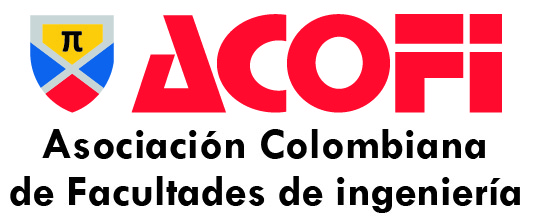A proposal for the learning evaluation in a new engineering curriculum within a military context
DOI:
https://doi.org/10.26507/rei.v9n18.425Palabras clave:
Bologna Process, continuous evaluation, learning, military context, skillsResumen
In the context of Bologna Process, the usual methods of evaluation have been adapted to obtain a better assessment of the acquisition of students’ skills. This is one of the key issues in the case of engineering degrees, which involves the transformation of the traditional evaluation systems into continuous evaluation systems. This work has been developed in a mechanical engineering degree which is offered at a university center within a military context. The implementation of the new curriculum has raised serious doubts about its adequacy, since it is the first time that midshipmen must obtain a degree in engineering to be officers of the Navy. We pretend to get a smooth implementation of the new curriculum, trying to avoid students’ failure. We show the teaching methods and the assessment techniques used to get it. We present the results obtained in subjects offered at the first year of the degree. The influence of continuous evaluation system on quality of learning process has been analyzed. If the teaching methodology is the proper one, an effective evaluation system could help to prevent the failure of the education system. An evaluation system based on continuous assessment should contribute to a good quality of learning.Descargas
Referencias bibliográficas
Artigas, J.I., Acero, J., and Asensio, A. (2008). Experiencia de evaluación continua en grupos numerosos: asignatura de sistemas electrónicos. Paper presented at the VIII Congreso de Tecnologías Aplicadas a la Enseñanza de la Electrónica, TAEE 2008, Zaragoza, Spain.
Astin, Alexander. (1991). Assessment for excellence: the philosophy and practice of assessment and evaluation in higher education. Westport, CT: The Oryx Press.
Bidon-Chanal Badia, A., Cajal Visa Y., Campanera Alsina J.M., Egea Gras M.A., Gamisans Linares, F., García López M.L., Girona Brumós M.V., Hernández Borrell J., Montero Barrientos, M.T., Muñoz Juncosa, M.M., Aixelà Prat, J., and Weronski, K.J. (2009). Methodological Adaptation to EHEA of the subject of Instrumental Techniques of Pharmacy degree at the University of Barcelona. Ars Pharm, 50(2), 279-289.
Boud, David, and Falchikov, Nancy. (1989). Quantitative studies of student self-assessment in higher education: a critical analysis of findings. Higher Education, 18(5), 529-549.
Brown, Sally, and Glasner Angela (Eds.). (1999). Assessment matters in higher education: choosing and using diverse approaches. Buckingham, UK: Open University Press.
Cano, M. D. (2011). Students’ Involvement in Continuous Assessment Methodologies: A Case Study for a Distributed Information Systems Course. IEEE Transactions on Education, 54(3), 442- 451.
Clariana, M., Gotzens, C., and Badia, M. (2011). Continuous assessment in a large group of psychology undergraduates. Electronic Journal of Research in Educational Psychology, 9(1), 95- 112.
Coll, C., Rochera, M.J., Mayordomo, R.M., and Naranjo, M. (2007). Continuous assessment and support for learning. An experience in educational innovation with ICT support in higher education. Electronic Journal of Research in Educational Psychology N. 13, 5(3), 783-804.
De la Nuez, C. F., González, J.L.J., and Martín, I. S. (2011). Obstacles in the Bologna road: measuring the effects of the European Education Area (EHEA) on students’ performance. Revista de Educación, 354, 629-656.
Dixon, Rob, and Rawlings, George. (1987). Experiences with continuous assessment. Assessment & Evaluation in Higher Education, 12(1), 24-36.
Dym, C.L., Agogino, A.M., Eris, O., Frey, D.D., and Leifer, L.J. (2005). Engineering Design Thinking, Teaching, and Learning. Journal of Engineering Education, January, 103-120.
European Association for Quality Assurance in Higher Education. (2005). Standards and Guidelines for Quality Assurance in the European Higher Education Area. http://www.ond.vlaanderen.be/hogeronderwijs/bologna/documents/Standards-and-Guidelines-for-QA.pdf
European Communities. (2009). ECTS Users’ Guide. http://ec.europa.eu/education/lifelong-learning-policy/doc/ects/guide_en.pdf
European Ministers of Education. (2007). London Communiqué. http://www.ond.vlaanderen.be/hogeronderwijs/bologna/
Falchikov, Nancy. (2005). Improving assessment through student involvement: Practical solutions for aiding learning in higher and further education. Abingdon, Oxon: RoutlededgeFalmer, Taylor & Francis Group.
García Peñalvo, F. J., Bravo Martín, S., and Conde González, M. A. (2009). A student-centered learning model applied in an introductory Software Engineering course. Paper presented at the 20th EAEEIE Annual Conference, EAEEIE, 2009 June 22-24, Valencia, Spain.
Hoste, Roland, and Bloomfield, Barbara. (1975). Continuous assessment in the CSE: Opinion and practice. London, UK: Evans Bros: Methuen.
Knight, Peter (Ed.). (1995). Assessment for learning in higher education. Abingdon, Oxon: RoutlededgeFalmer, Taylor & Francis Group.
Kourilsky, Marilyn, and Wittrock, Merlin C. (1992). Generative teaching: An enhancement strategy for the learning of economics in cooperative groups. American Educational Research Journal, 29(4), 861-876.
Miller, Allen H., Imrie, Bradford W., and Cox, K. (1998). Student assessment in higher education: a handbook for assessing performance. London, UK: Kogan Page Limited.
Ministers of Education in charge for France, Germany, Italy and the United Kingdom. (1998). Sorbonne Joint Declaration. Joint Declaration on Harmonisation of the Architecture of the European Higher Education System, May 25, 1998.
Ministry of Defence. Government of Spain. (2010). http://www.defensa.gob.es/en/FormacionMilitar/
Nicolau, J.L., Ruiz, R. (2010). Nuevas Titulaciones y Cambio Universitario. Universidad de Alicante (Ed.) La motivación del profesorado de la Universidad de Alicante (617-629). Alicante, Spain.
Prime Minister of Spain. (2007). Ley de la Carrera Militar. http://www.defensa.gob.es/RROO_2009/lcm.html
Spain’s Minister of Defence and Rector of the University of Vigo. (2010). Convenio de Adscripción entre el Ministerio de Defensa y la Universidad de Vigo. http://www.reclutamiento.defensa.gob.es/upload/resoluciones_convenios_adscripcion_centros_universitarios_defensa_universidades_publicas_1.pdf
Spain’s Minister of Education and Science. (2007). Real Decreto 1393/2007. http://www.educacion.gob.es/educacion/universidades/educacion-superior-universitaria/ organizacion-ensenanza-universitaria.html
Vinhas, J., and Paiva, J. (2010). Bologna Process – IT’s time for a look back: A Mechanical Engineering case. Paper presented at the ASEE Annual Conference and Exposition, 2010, June 22, Louisville, KY.
Descargas
Publicado
Cómo citar
Número
Sección
Licencia
Se autoriza la reproducción total o parcial de los documentos publicados en la Revista siempre y cuando se cite la fuente y el autor.
| Estadísticas de artículo | |
|---|---|
| Vistas de resúmenes | |
| Vistas de PDF | |
| Descargas de PDF | |
| Vistas de HTML | |
| Otras vistas | |









